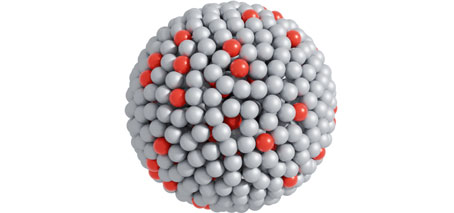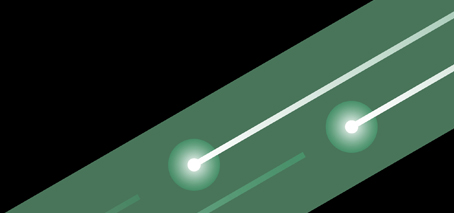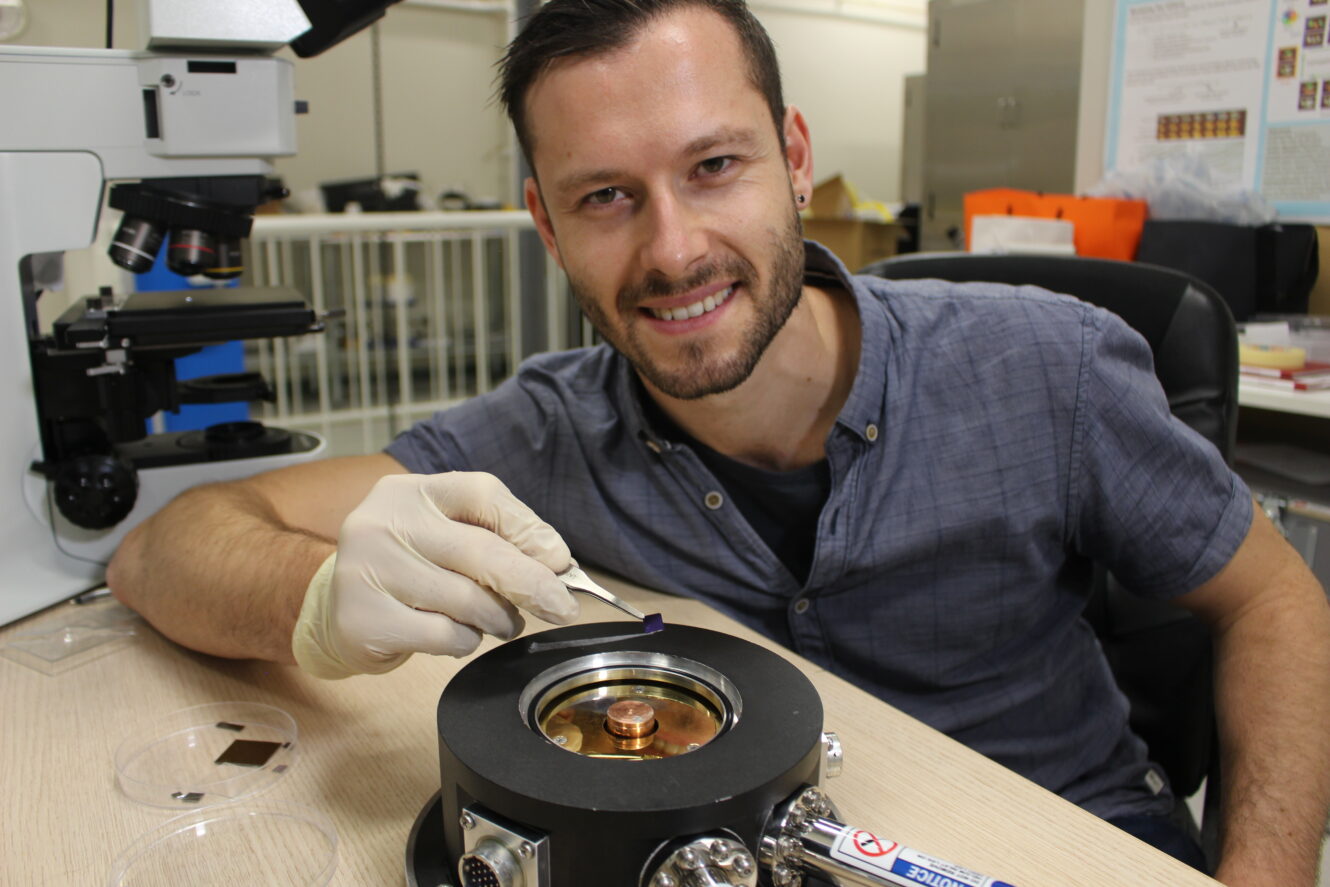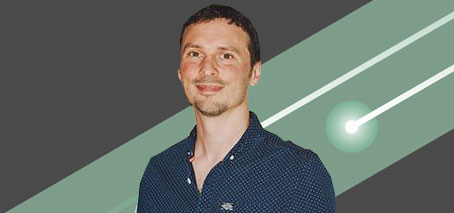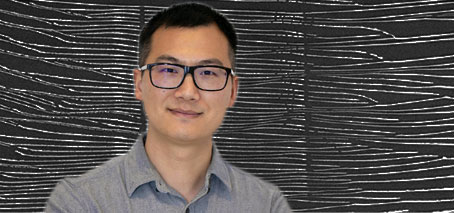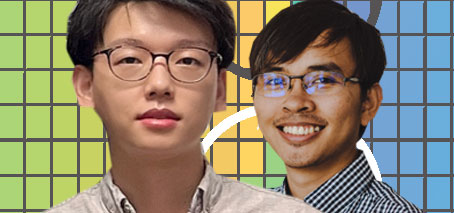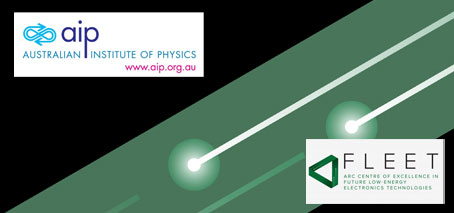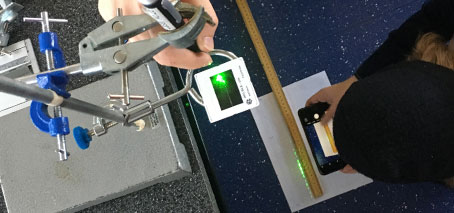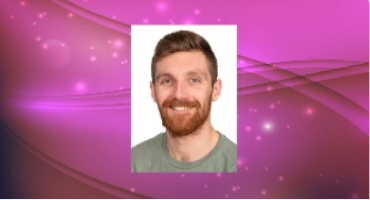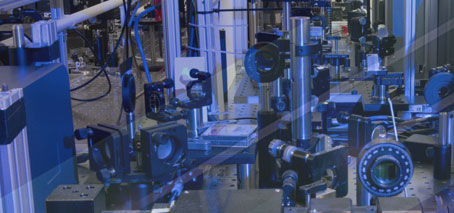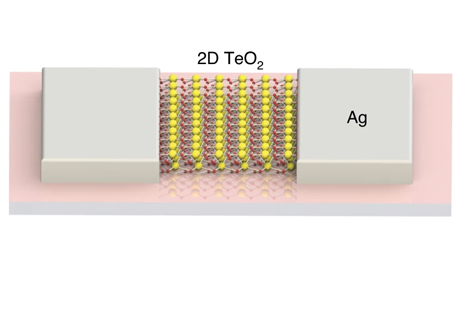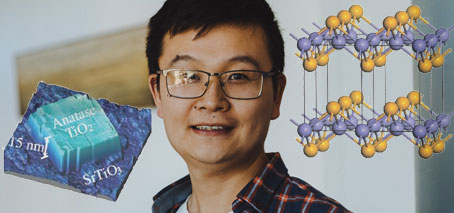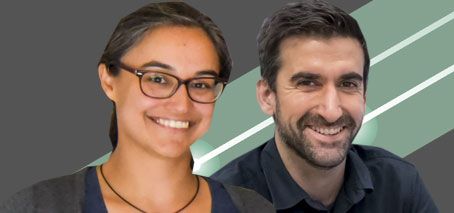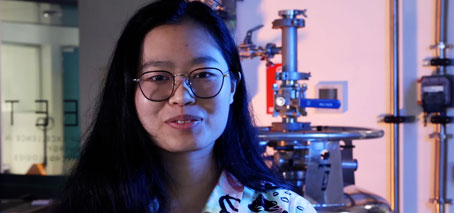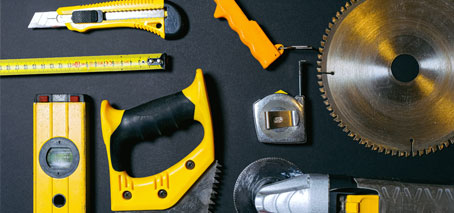In an Exciton Science/FLEET study, researchers have been able to use trace amounts of liquid platinum to create cheap and highly efficient chemical reactions at low temperatures, opening a pathway to dramatic emissions reductions in crucial industries. When combined with liquid gallium, the amounts of platinum required are small enough to significantly extend the earth’s reserves of this valuable metal, …
A local trifecta of semiconductor physics in June/July
Semiconductor physics conference, satellite symposium and FLEET workshop It is a wonderful opportunity for Australia’s semiconductor physics community, as Sydney hosts the International Conference on the Physics of Semiconductors (ICPS22, 27-30 June), the premier forum for new semiconductor physics. Nobel Laureates Prof Klaus von Klitzing (Quantum Hall Effect) and Prof Kostya Novoselov (graphene) join an impressive array of 60 international …
Postcard from Singapore: Life post-FLEET with Centre alumni Elizabeth Marcellina
Keep discovering and rediscovering yourself Be open to new research and life directions Hi, I am Elizabeth Marcellina, and I was previously a FLEET PhD student and then Research Fellow at UNSW with Prof Alex Hamilton and A/Prof Dimitrie Culcer. My general research directions within FLEET were to harness spin-orbit interactions in semiconductors for spintronics and spin-orbit qubits. To be …
FLEET Seminar: All-dielectric nanophotonics with transition metal dichalcogenide (TMDC) semiconductors
Luca Sortino Chair in Hybrid Nanosystems, Nanoinstitute Munich, Faculty of Physics, Ludwig-Maximilians-Universität München, Germany In-person at Monash New Horizons Centre (with refreshments), and online – Zoom link will be sent upon registration High-refractive index dielectrics have emerged as an exciting nanophotonic platform to shape and control electromagnetic fields at the nanoscale, offering a toolbox for tailoring light-matter interaction of solid-state …
FLEET Satellite Meeting
Members & Affiliates Only Event In conjunction with ICPS 2022 in Sydney on 27-30 June, FLEET is hosting a ICPS Satellite Symposium on Friday, 1 July 2022 at the Headlands Austinmer Beach resort, about 1.5 hours south of Sydney. The FLEET ICPS Satellite Symposium is intended to be an intimate workshop to discuss the latest research in topics relevant to …
Matthias Wurdack off to Lindau Nobel meeting
FLEET’s research fellow Matthias Wurdack has been chosen to represent Australia at the annual Lindau Nobel Laureate Meeting this year. Matthias will be among six early-career Australian scientists attending the 71th Meeting of Nobel Laureates in Lindau, Germany, 26 June – 1 July 2022. The 71th Lindau Nobel Laureate Meeting will be dedicated to chemistry, expected to be attended by around …
Reaching academic heights in Europe: catching up with FLEET alum Pavel Kolesnichenko
Ex FLEET/Swinburne PhD student Now senior postdoctoral scientist at Heidelberg University (Germany) Hello FLEETers! I am Pavel. I completed my Ph.D. at FLEET, working with Prof. Jeffrey Davis at Swinburne University of Technology (Centre for Quantum and Optical Science). Actually, if your own work at FLEET includes optical characterisation of 2D semiconductors, you might even be using something I built! …
Translating FLEET research to industry: info session
What is ‘translation’ anyway, and what are the benefits for me / my work? Does this apply to my work? Will industry be interested in what I’m doing? How can FLEET help me do this? Join us Thursday 24 March to find out how your innovations and discoveries can be translated into industry inventions, devices, and eventually products. Find out …
Jesper Levinsen outstanding referee
Congratulations to FLEET’s Jesper Levinsen, whose exceptional work as referee of peer-reviewed papers has been recognised by the Outstanding Referee Awards, one of only three in Australia in 2022, by the American Physical Society (APS). The APS recognises around 150 outstanding referees each year who have demonstrated exceptional work in the assessment of manuscripts submitted to the Physical Review journals. …
Liquid metals, surface patterns, and the Romance of the Three Kingdoms
“The long divided, must unite; long united, must divide. Thus it has ever been.” The opening lines of the great Chinese historical novel Romance of the Three Kingdoms condense its complex and spectacular stories into a coherent pattern, that is, power blocs divide and unite cyclically in turbulent battle years. A good philosophy or theorem has general implications. Now, published …
Trapping vortices in thin superfluid films
Physicists at the University of Queensland have shed light upon how tiny whirlpools (vortices) get stuck to obstacles in superfluids. Superfluids are a quantum substance that can flow without viscosity and hence do not slow down due to friction. A second defining feature of superfluids is that they only support quantised rotation – the vortices can only spin with strength …
FLEET 2021 Workshop Program
The FLEET2021 workshop takes place in MeetAnyway virtual platform. If you have not received an invitation to join the meeting space, please email FLEETcentre@monash.edu for assistance. The full workshop program is below, also available in the FLEET Google calendar for your convenience.
Losing isn’t always bad: gaining topology from loss
Generating topology from loss in hybrid light-matter particles Observation of new non-Hermitian topological invariant in exciton-polariton system Losing particles can lead to positive, robust effects. An international collaboration has demonstrated a novel topology arising from losses in hybrid light-matter particles, introducing a new avenue to induce the highly-prized effects inherent to conventional topological materials, which can potentially revolutionise electronics. Led …
Presenting a feast of FLEET science
There will be a feast of FLEET science in show at the Australian Institute of Physics Summer Meeting (this coming week, 6–9 December) at QUT in Brisbane, with parallel online delivery. The summer meeting will see plenary and keynote talks by FLEET’s Michael Fuhrer, Dimi Culcer and Kirrily Rule, with over 30 presentations by Centre members across six universities. FLEET …
Students confirm benefits of FLEET future-computing unit
Surveying and student interviews confirms success of future computing unit in encouraging girls/other students in physics Over the last three years FLEET has helped put ninety Year 10 students through a ‘Future electronics’ unit, in partnership with John Monash Science School (JMSS). As well as covering semiconductors, Moore’s Law and computing, the course introduces quantum physics at an intuitive level …
World record broken for thinnest X-ray detector ever created
Highly sensitive and with a rapid response time, the new X-ray detector is less than 10 nanometres thick and could potentially lead to real-time imaging of cellular biology. Exciton Science and FLEET researchers have used tin mono-sulfide (SnS) nanosheets to create the thinnest X-ray detector ever made, potentially enabling real-time imaging of cellular biology. X-ray detectors are tools that allow …
Cheering on FLEET’s Mitko Oldfield in the International Visualise Your Thesis
Semiconductor Moiré Superlattices: a New Material Platform for Quantum Information Science
Professor Xiaoqin (Elaine) Li, Professor of Physics, University of Texas-Austin Zoom registration Meeting ID: 883 1736 6970 Passcode: 12345 When two atomically thin van der Waals (vdW) layers are vertically stacked together, the atomic alignment between the layers exhibits periodical variations, leading to a new type of in-plane superlattices known as the moiré superlattices. The twist angle controls the size …
Ultra-short or infinitely long: it all looks the same
Driven states in WS2 monolayers unable to discriminate between ultrashort pulses of light and an infinite, continuous drive Ultrashort pulses of light can adiabatically drive transitions to new Floquet phases of matter Ultrashort pulses of light are proven indistinguishable from continuous illumination, in terms of controlling the electronic states of atomically-thin material tungsten disulfide (WS2). A new, Swinburne-led study proves …
Diversity in FLEET Fellowships
Application deadline extended till 3 Dec 2021 The ARC Centre of Excellence in Future Low-Energy Electronics Technologies (FLEET) is seeking to appoint up to four outstanding early-career candidates as Research Fellows to perform research at relevant FLEET node/s as determined by the candidates’ expertise and research aspirations. The appointment is for up to two years (at a full-time load), with part-time …
Women in FLEET Fellowships
Application deadline extended till 3 Dec 2021 The ARC Centre of Excellence in Future Low-Energy Electronics Technologies (FLEET) is seeking to appoint up to four outstanding early-career candidates as Research Fellows to perform research at relevant FLEET node/s as determined by the candidates’ expertise and research aspirations. The appointment is for up to two years (at a full-time load), with …
Optical response of 2D semiconductors: an approach based on Semiconductor Bloch Equations
Dr Mykhailo Klymenko, RMIT, Centre for Excellence in Exciton Science Missed the tutorial? Watch it on YouTube here The semiconductor Bloch equations (SBEs) have proven to be an efficient tool to describe linear and non-linear optical responses of semiconductor lasers and LEDs taking into account many-body effects such as electron-electron interactions, electron-phonon scattering, and Auger recombination. Their success in simulating …
FLEET schools: FLEET research and the need for the next generation of electronics
Congratulations Dr Zhi Li, a superconducting Future Fellow
Congratulations to FLEET AI Dr Zhi Li (UOW) who received an ARC Future Fellowship in this month’s announcement. The new ARC Fellowship will support Dr Li’s study of iron-based high-temperature topological superconductors, based at the Institute of Superconducting and Electronic Materials (ISEM) at the University of Wollongong. The topological non-trivial nature and zero resistance of topological superconductors make them very …
Congratulations Meera Parish and Agustin Schiffrin
Congratulations to two of FLEET’s Chief Investigators, whose contributions have recently been recognised by the School of Physics and Astronomy at Monash University: Meera Parish promoted to full Professor Agustin Schiffrin promoted to Associate Professor Prof Meera Parish (right) is a theoretical physicist developing many-body theories that span electron-hole systems and ultracold atomic gases. She is an ARC Future Fellow …
FLEET 2021 Strategic Workshop
Members Only Event The 2021 FLEET Strategic Workshop will be in a hybrid format, in person at the Teaching and Learning Building, Monash Clayton and live-streamed on zoom for remote attendees. With the goal to review the Centre research milestones and strategic plan, this 3-day workshop program will have the following schedule: Wednesday 7 July 2021: Theme 1, A and …
Women in FLEET Honours students at RMIT, UNSW, ANU
Please welcome FLEET’s three new Women in FLEET Honours students: Kyla Rutherford (RMIT) Olivia Kong (UNSW) Robin Hu (ANU) Kyla, Olivia and Robin have all received Women in FLEET Honours Scholarships, which are awarded to high performing students doing their Honours research project with FLEET. Kyla Rutherford will be working with Jared Cole at RMIT to understand transport properties in …
Tools of the Trade: Eli Estrecho explains laser trapping for Nature series
A ‘pumped’ laser can be used to trap and manipulate an exciton-polariton condensate. These quantum fluids, which can behave as a resistanceless superfluid in certain conditions, need continuous replenishing, with the pumping laser supplying both a reservoir of electrons and confining force. “The pumping laser can trap the quantum fluid as the particles are repelled from the pump region, similarly …
Building future science leaders in 2020
FLEET ensures that our young researchers are prepared for future success – wherever their career takes them. The Centre currently supports 64 higher degree by research (HDR) students and 45 postdoctoral researchers with another 21 research affiliates working on FLEET projects and invited to Centre training, workshops and events. FLEET connects its researchers with internal and international networks, for example, …
Monthly talks bring Australian research to the physics community
A series of talks spotlights leading Australian physics research for the physics community. Co-organised by FLEET and the Australian Institute of Physics, the series throws the spotlight on a different Australian Research Council Centre of Excellence each month, with AIP members and others in the physics community dialing in over zoom to hear about leading Australian research. To date, over …

